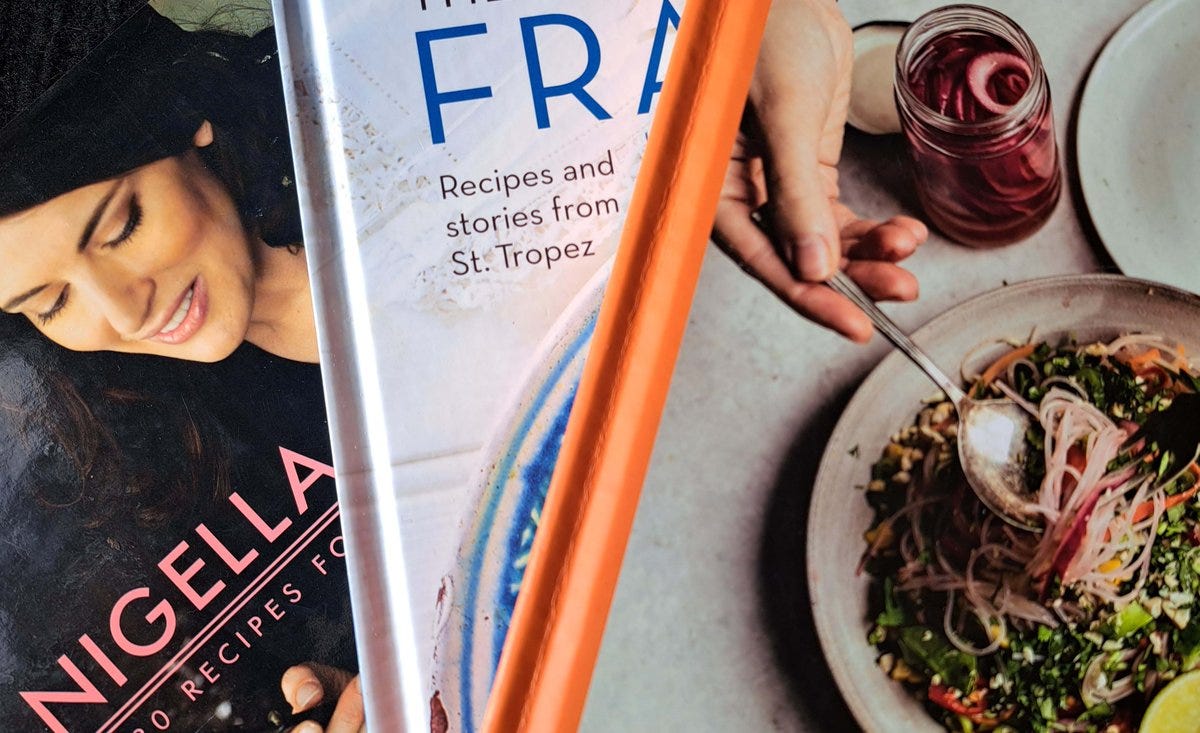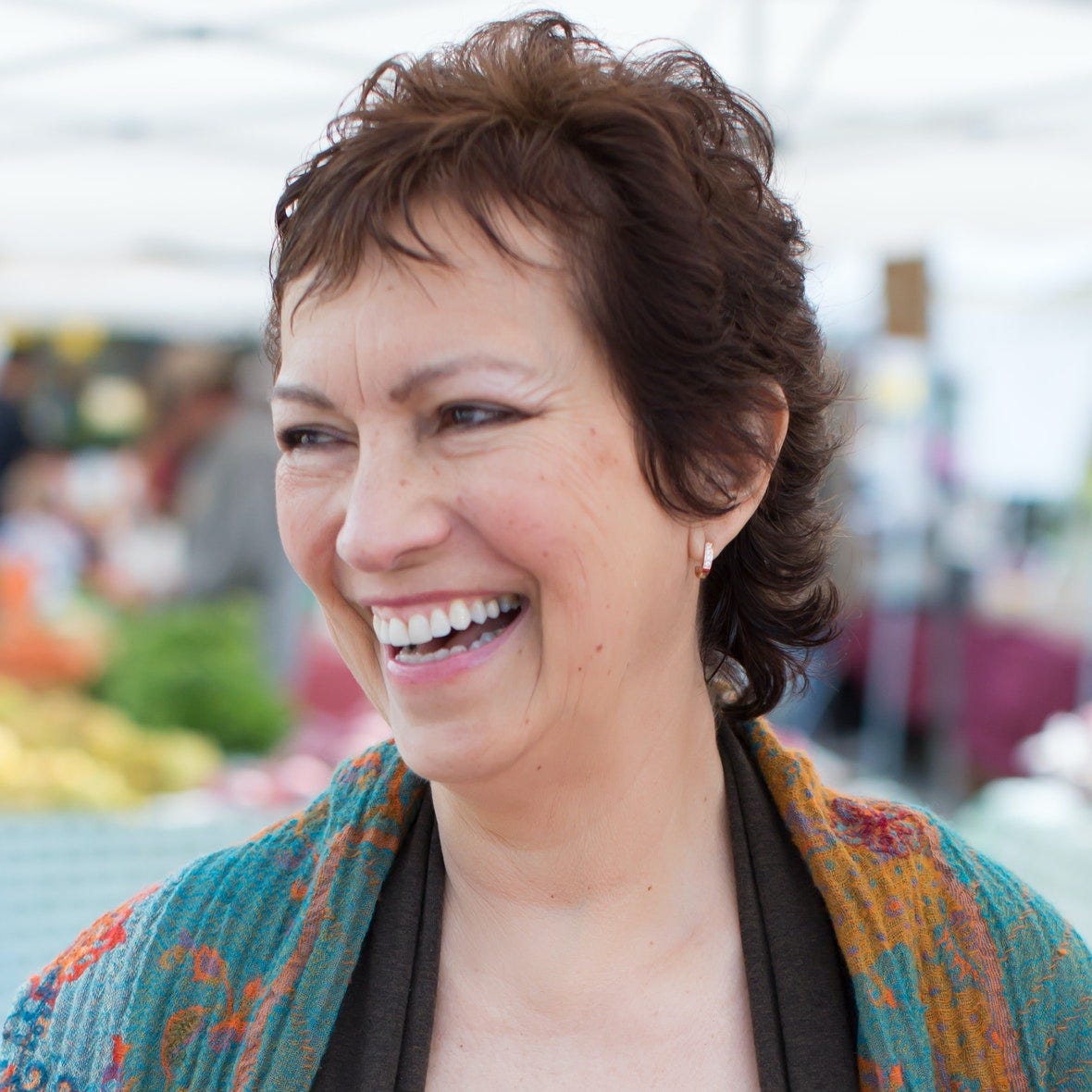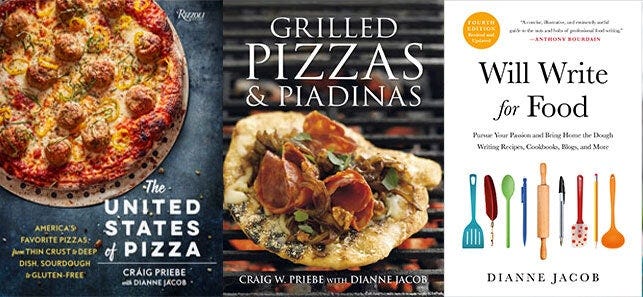
You know how it’s super uncomfortable to negotiate pay for your work? At least it is for most writers, including me. But I have one phrase that usually works.
I got to use it recently when a textbook publisher contacted me about republishing a cover story I wrote for Writer’s Digest on food writing.
The email didn’t mention a fee. My first thought was to suggest $250 and we’d call it a deal. Writer’s Digest paid me $1000 for the 2000-word feature. Anything more would be gravy. But then I thought I had nothing to lose by using that certain phrase.
Usually I ask, “What’s your budget?” This time I emailed back a slightly modified version: “What do you plan to pay for this use?” I figured it didn’t hurt to think positively and suggest, indirectly, that a fee would be necessary.
Her answer: “We have a budget from (USD) $1000-$1500 for such usage. Please suggest.”
What a thrill to read her email. It’s so seldom that I get paid to repurpose a piece, and for a good price. I suggested we split the difference with $1250. She agreed.
So, when someone doesn’t mention money, you might ask, in the nicest, most innocent way possible, “What is your budget?” Or choose to assume that a fee will result, and employ the alternate phrase I used.
What about you? Are you uncomfortable about negotiating payment when no one mentions a fee? How do you handle it? Has this phrase worked for you?
What I’m Baking:
Here I am in my pretty new apron, a gift from a friend. I’m holding a Meyer Lemon Shaker Pie I baked for a neighbor as a thank you gift. To find out how it turned out, read this.
A Serendipitous New Podcast!
A few weeks ago a food writer friend forwarded an email from Abe Books. It suggested books she might like to read, including mine, Will Write for Food. I went on Twitter and thanked Abe Books for mentioning it. A few days later, Richard Davies, who conducts the podcasts for Abe Books, invited me on the show!
Here is the result, a wide-ranging interview about writing technique, cookbook structures, testosterone in food memoir and more. I hope you’ll listen.
New Proposal Class Starts in April!
Jumpstart Your Cookbook Proposal
3 Sundays, April 16, 23 and 30, 10 a.m.-1 p.m. PT/ 1-4 p.m. ET
Civic Kitchen 3-hour Zoom Classes
12 students maximum
$399 online
Ready to write a cookbook? Good. To have it traditionally published, you’ll need to write a cookbook proposal. Cookbook proposals are long, a cross between a business plan and an explanation of your book.
Perhaps you’re not sure what to write, or you would like accountability and support. Either way, this is the class for you.
You’ll get lots of strategic insider advice gained from my decades of teaching and writing about cookbooks, judging them for national awards, and co-writing two with a chef. I'll lay out how the publishing industry works and what editors and agents look for in a professional proposal.
I'll discuss what’s included in each section of successful proposal. You’ll write first drafts of several proposal sections in the class and get valuable feedback. At the end of three weeks, you'll have a solid start to your proposal, and ideas of how to make it irresistible to an agent or editor.
Bonus: It's unusual to see someone’s successful cookbook proposal. I'll share one of mine, which led to a beautiful cookbook by Rizzoli.
P.S. If you live outside the US, I hope these times are doable for you.
Private Consults
Through a partner, Delicious Experiences
One-hour consult: $250
For years I've had a five-hour minimum for consulting. But now, through this company, you can book a Zoom consult for just 1 hour or more. If you’ve wanted to start your cookbook, get your book published, or get better freelance assignments, let’s move you forward. I’ve talked with writers at all levels about a variety of food-writing topics.
What I'm Reading
18 Cookbooks That Everyone Should Own. So says Vogue.
He Taught Americans to Cook Indian Food. Now He’s on His Final Chapter. About dear Raghavan Iyer, by Kim Severson, who excels at profiles. (Unlocked New York Times article.) I interviewed him here.
Jean Anderson, 93, Exacting and Encyclopedic Cookbook Author, Dies. What a tremendous career! She even published a cookbook at age 90. (Unlocked New York Times article.)
How Betty Crocker, other legacy cookbooks are trying to stay relevant. They’re always going to be important for the inexperienced home cook. (Unlocked Washington Post article.)
Food Writer Melissa Clark Explains How One-Pot Meals are Like Haiku. An interview with the prolific author about developing recipes and writing cookbooks.
Clementine Paddleford: The Woman who Revolutionized Food Writing. A podcast from a group focused on “stories of women who changed the world.”
‘The I Hate to Cook Book’ Fought Domestic Despair with Laughter. I love that cookbook by Peg Bracken. I wrote about it here.
Cookbook author Lesley Tellez talks about her writing career and how she feed her kids breakfast. Entertaining!
What is it about cookbooks? An NPR Marketplace story about the sustained appeal of cookbooks.
How to get a job as a food stylist. The Los Angeles Times explains.
The Myth of Everyone Says So. A wise post about how “everyone” wants you to write a book.
Soleil Ho Pushes Back from the Table. A podcast with the influential San Francisco Chronicle restaurant critic about their experiences over the past four years, and what’s next.
She Made Me a Food Writer. Ruth Reichl writes about her relationship with M.F.K. Fisher.
News About Clients and Students
Majed Ali wrote a Cinnamon-Orange Blossom Almond Cake recipe for Saveur. (I coached him on freelancing.)
Reem Kassis wrote Palestinian Food 101: Recipes to Get You Started in Serious Eats. (I coached her on her first cookbook proposal.)
Anna Mindess wrote The Passion (and Fantastical Fashion) of France’s Food Brotherhoods for Atlas Obscura. (I coached her on freelance writing.)
Congratulations to Jess Smith, who sold her cookbook at auction. (I coached her on the book proposal.) Here’s the announcement from Publishers Marketplace: “Chief recipe developer for the Cook Smarts meal plan service and creator of the Inquiring Chef food blog Jess Smith's Start with a Vegetable: 100 Easy, Veggie-Forward Recipes and 15 Meal Plans, which makes vegetables the star of every dish with a time-saving, flexitarian approach to family meals and healthier eating, to James Jayo at Countryman Press, at auction, by Marilyn Allen at Allen Literary Agency (world).”
Nico Vera wrote Garlic Paste Is a Quick Shortcut to Big Flavor for Epicurious. (I coached him on freelance writing.)
Maggie Zhu wrote The Best Ways to Cook Tofu, From Air Frying to Baking and Braising for Martha Stewart. (I coached her on her first cookbook proposal.)
I like to brag about food writing accomplishments here. Send me an email: dj@diannej.com.
Thanks for Reading
Like this newsletter? Please forward it to a few people or share on social media. It really helps! New subscribers can sign up here. Thank you.
If you enjoyed this post, please click on the little ❤️ below ⬇️.
Dianne Jacob
Editor, Writer and Coach
Email: dj@diannej.com
Website: http://diannej.com
Twitter: https://twitter.com/diannej
Facebook: https://www.facebook.com/foodwriting
Instagram: https://www.instagram.com/diannemjacob/
My Books
Will Write for Food: 2021 4th Edition
Disclosures: I am an affiliate of Food Blogger Pro, Amazon and Bookshop.org.








What a great suggestion. Also this: I recently pitched a food company (fish) about consulting on how to attract a niche audience I know well. They immediately responded to my question about pay with that dreaded, “We pay in product”. I decided to opt for humor and responded, “no thanks. If I get paid in product I’ll be swimming in fish”. It worked! The convo continues and they’ve agreed to my fee.
That phrase, and then waiting for the response without feeling I have to fill the silence, has always worked for me, too.